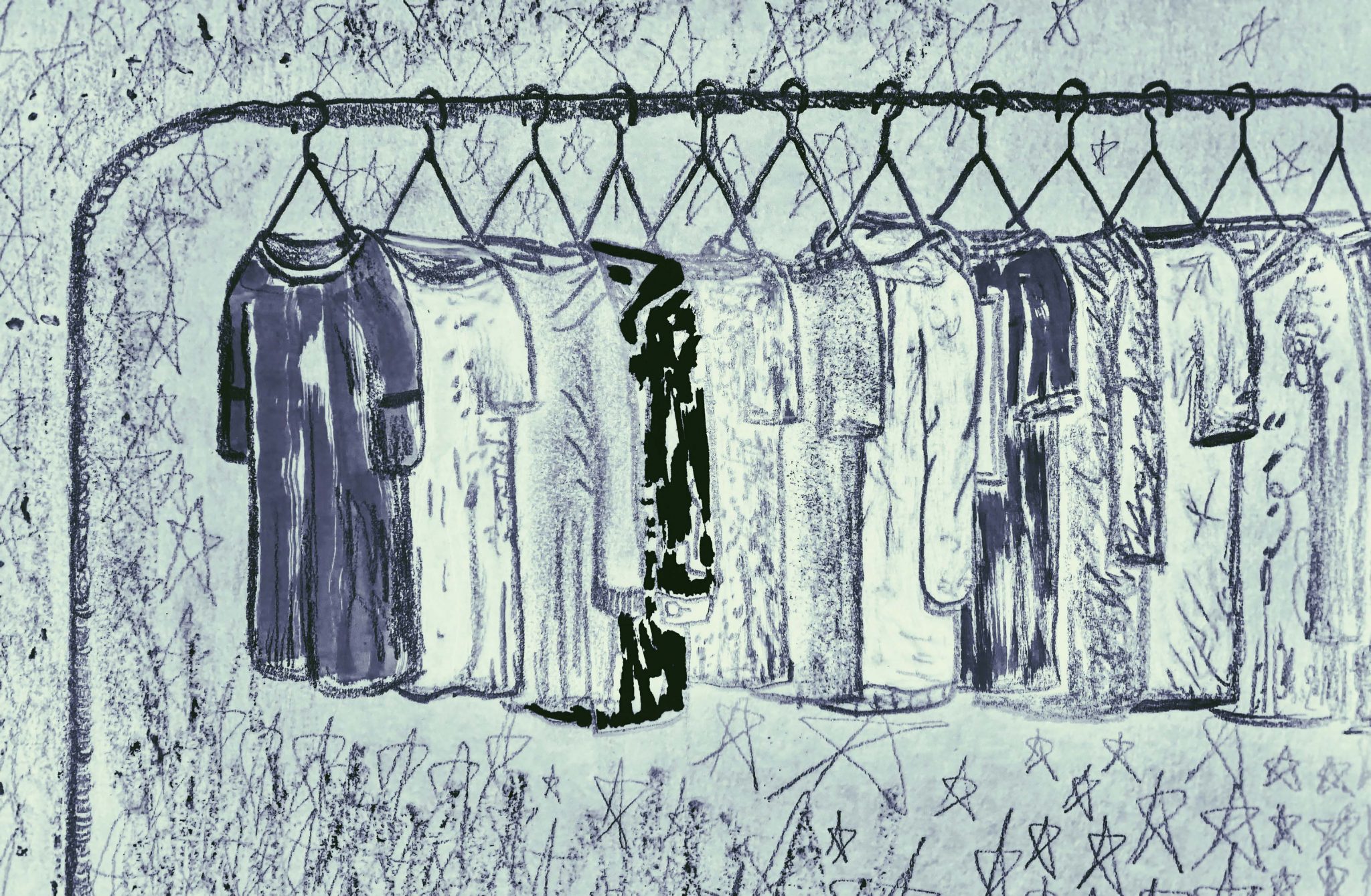Hannah Clinton, founder and owner of Out of da Closet, is one of many people who are trying to reduce their clothing consumption to help combat climate change. Out of da Closet has been providing gender-neutral clothing and accessories at affordable prices for two years. Clinton ensures that the clothes she buys for her store are ethically sourced in order to promote recycling and reusing.
“I try to pick a wide variety of clothing regardless of gender and then promote it as, ‘Anyone can wear this. This is for anyone’,” Clinton said.
Out of da Closet has made a big splash in the local vintage scene as it is one of the only small resellers that promotes itself as a safe seller for queer and trans people.
Like many modern resellers, Clinton mostly conducts their business online. Instagram has been particularly helpful for Clinton to communicate with her customers. They use their stories to announce markets, clothing drops and sales they will attend. Their mission as a clothing reseller is to empower eco-aware consumers to be self-expressive through vintage clothing. Alongside their online presence, Clinton enjoys participating in marketplaces around the region.
“A few weeks ago, I was part of Pride Market. And it was nice to meet other queer individuals and kinda gauge their way of expressing their sexuality and gender identity through clothing. This is something that personally I like to do too,” Clinton said.
“I post reels and educational resources on my Instagram that helps educate the people who follow me and hopefully create a better society and better generation, a better community, [for a] better future,” they said.
Ever passionate about fashion, Clinton also creates handmade jewellery to accompany the many vintage pieces in their collection. They have always aspired to be a fashion designer, and now Clinton can make their clients look the best they can.
“When I originally started my business, [the clothes] were mostly from thrift stores, but now we source from rag houses, which are large factory type things filled with clothes. It’s a central point for clothes to go before they are shipped off to less wealthy countries. And they are sometimes cut up into textiles, but most of the time they just end up going into landfills,” Clinton said.
According to an environmental audit conducted by the UK House of Commons, textile production contributes more towards climate change than international aviation and shipping combined. By reducing the amount of new- material that is purchased, consumers can help reduce their fashion-carbon footprint. Buying vintage and supporting small resellers is a great way to do so.
“Most thrift stores have started significantly raising their prices, which is problematic, and that is blamed on resellers because there is more demand for thrifting. However, I would urge people who think that way to recognize that it’s not that the resellers are the people who go thrifting because it’s trendy, they are raising the prices. It’s the large corporations that are deciding to,” Clinton said.
Simultaneously, the ‘“fast fashion”’ industry is also to blame for many problems in the fashion industry. In recent years, many concerns have been raised that the fast fashion business model encourages over-consumption and generates excess clothing waste. The more consumers become aware, the more the movement towards reselling and reusing grows.
“Ensuring that I am [conducting] my business the best, ensuring that I’m not continuing to be a part of the problem is very important to me. And that’s also another reason why I try to use my business as like an outlet for creating change,” Clinton said. Although it may seem like a small gesture to support resellers in your region, any form of reducing consumption makes a big difference.
For more information, visit @out.ofdacloset on Instagram or outofdacloset.com. They are also available on Depop, Etsy and TikTok.




Leave a Reply